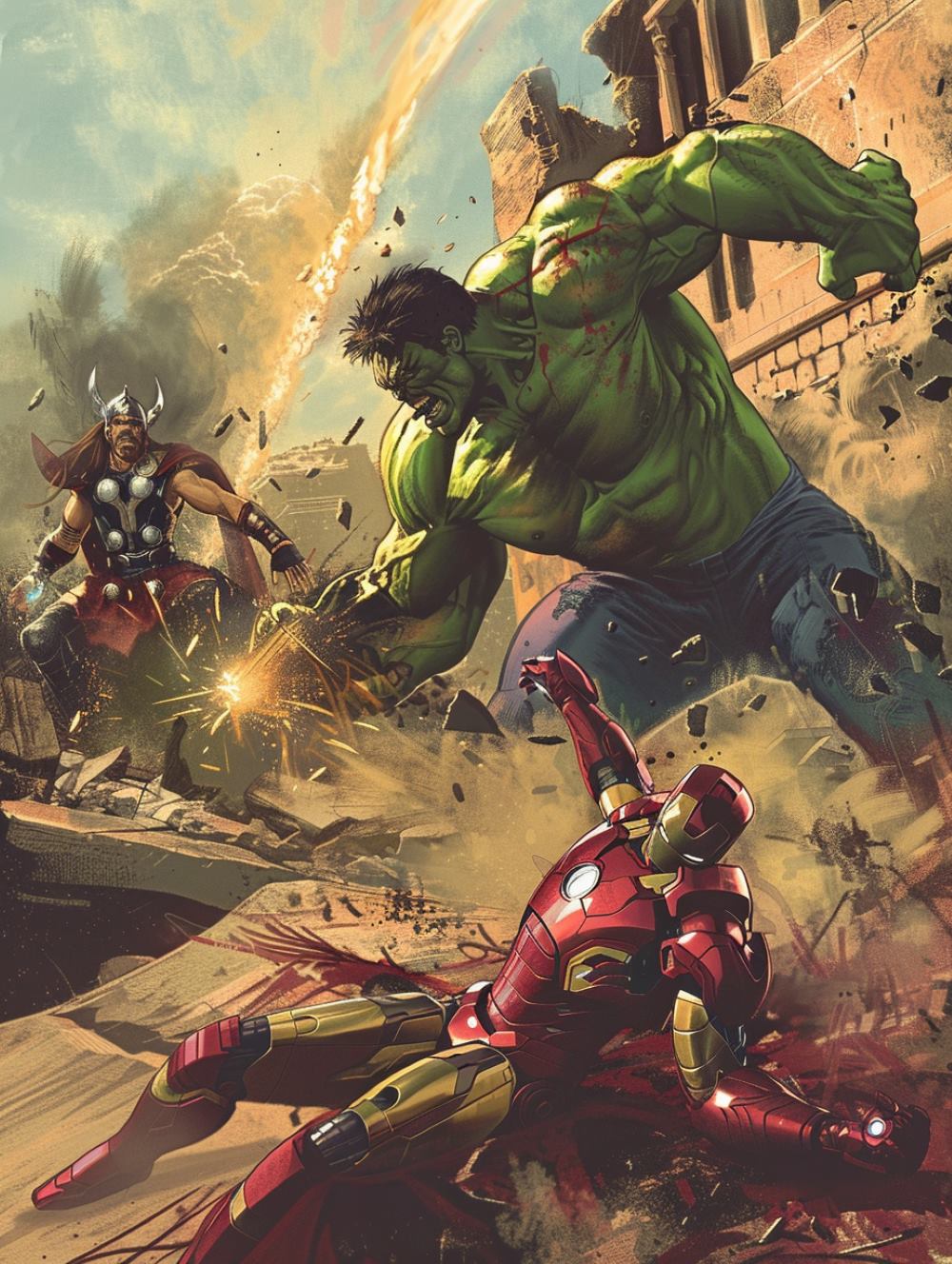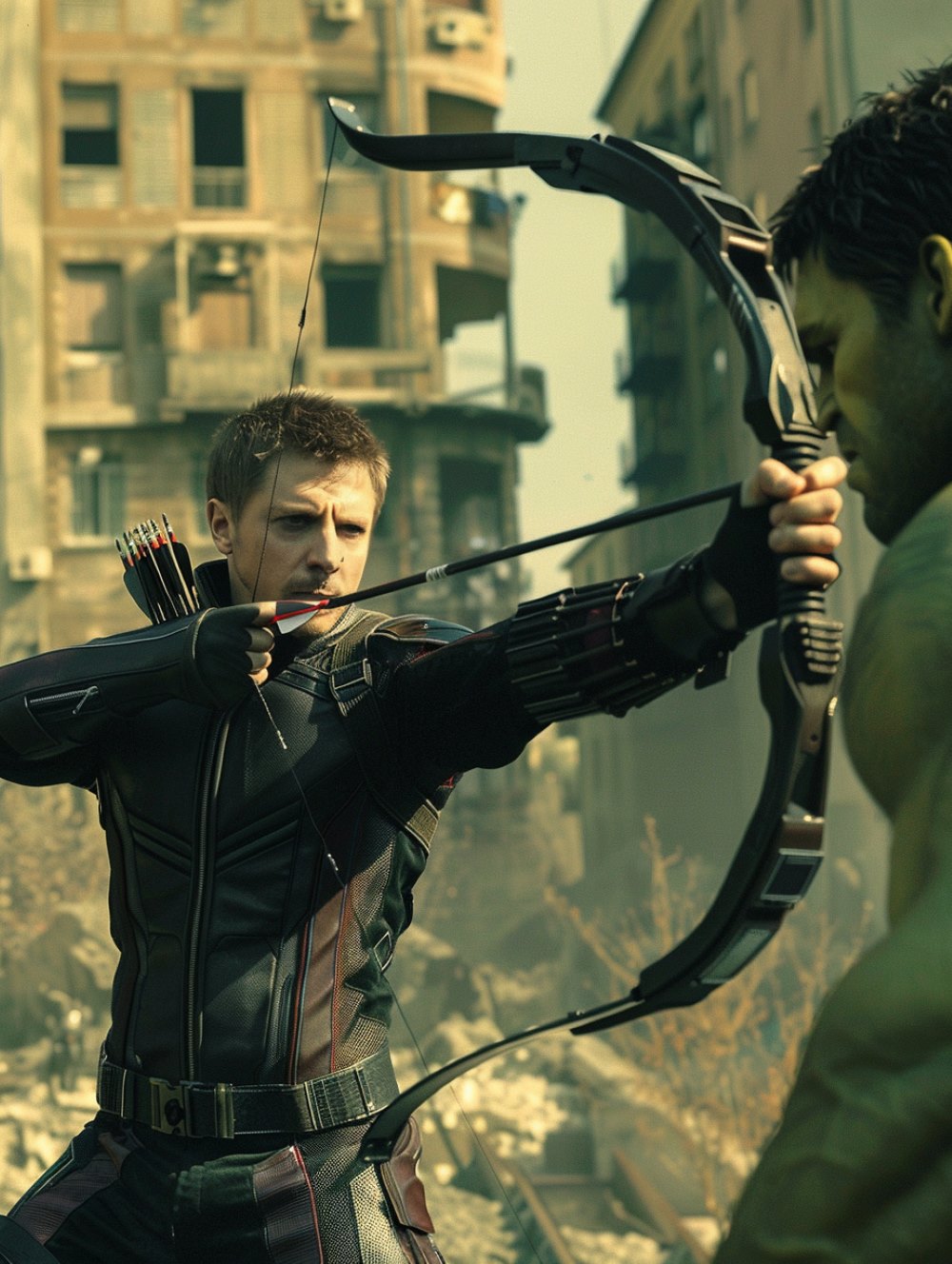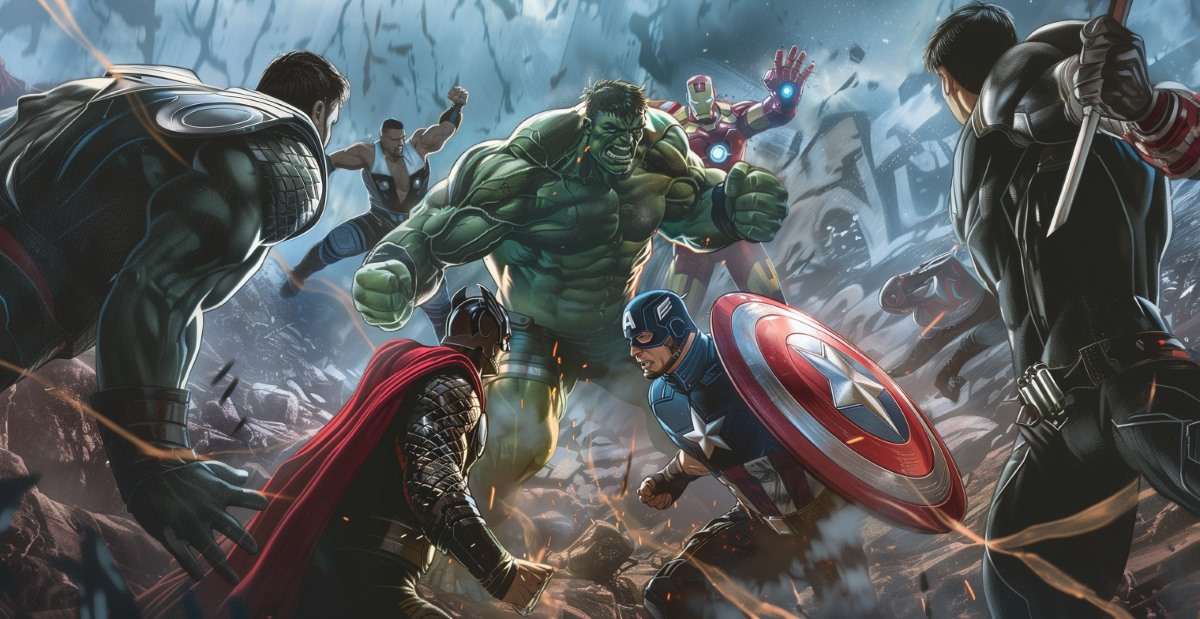In the gripping “Civil War II” storyline from Marvel Comics, one of the most unforgettable moments is when Bruce Banner, also known as the Hulk, meets his tragic end.
This event shakes the entire superhero community, leading to a deep rift and sparking a fierce debate on morality, friendship, and the price of safety.
The Hulk’s death is not just a storyline twist; it’s a moment that tests the bonds between heroes and challenges their understanding of right and wrong.
Contents
“Civil War II” and the Vision That Sealed Hulk’s Fate
The core of “Civil War II” revolves around a vision of the future, shown to the Avengers by Ulysses, an Inhuman with precognitive powers.
This vision is terrifying: it shows the Hulk in a rage, causing the destruction and death of several Avengers members.

Faced with this potential future, the Avengers are caught in a moral dilemma.
Should they act on this vision to prevent a possible disaster, even if it means betraying one of their own?
The storyline weaves a complex narrative about the ethics of preemptive action and the heavy burden of making such a decision.
The Controversial Decision to End Hulk’s Rampage Before It Begins
The climax of this internal struggle comes when the Avengers confront Bruce Banner.
Tension is high, and emotions run deep as they face their friend and colleague, fearing he might turn into the monstrous Hulk and fulfill Ulysses’ grim prophecy.
It’s Hawkeye who makes the ultimate choice, using a special arrow given to him by Banner himself for such an unfortunate scenario.
This arrow, designed by Banner to kill the Hulk if necessary, symbolizes the tragic depth of Banner’s awareness of the danger he poses and his trust in his fellow Avengers.

When Hawkeye uses the arrow, it’s a moment filled with sorrow, marking the end of Bruce Banner’s life and setting a somber tone for the consequences to follow.
The Profound Impact of Hulk’s Death on the Avengers
The fallout from Hulk’s death ignites a civil war among the heroes, dividing them into two factions.
On one side is Captain Marvel, who supports taking action based on Ulysses’ visions to protect the future.
On the other side is Iron Man, who argues that acting on what might happen threatens freedom and is morally wrong.
This division triggers a fierce debate over justice, the responsible use of power, and the duty of heroes to prevent or allow potential futures to unfold.
“Civil War II” skillfully navigates these themes, examining the impact of Hulk’s demise on the principles and unity of the Avengers.
It challenges them to reevaluate their responsibilities and the implications of their choices, ultimately shaping the narrative into a reflection on the true cost of heroism and the enduring consequences of their actions within the Marvel Comics universe.
In the end, the legacy of Hulk’s death and the civil war it sparks among the Avengers resonate far beyond the pages of the comics, reminding us of the complexities of heroism and the heavy costs of safeguarding the future.
